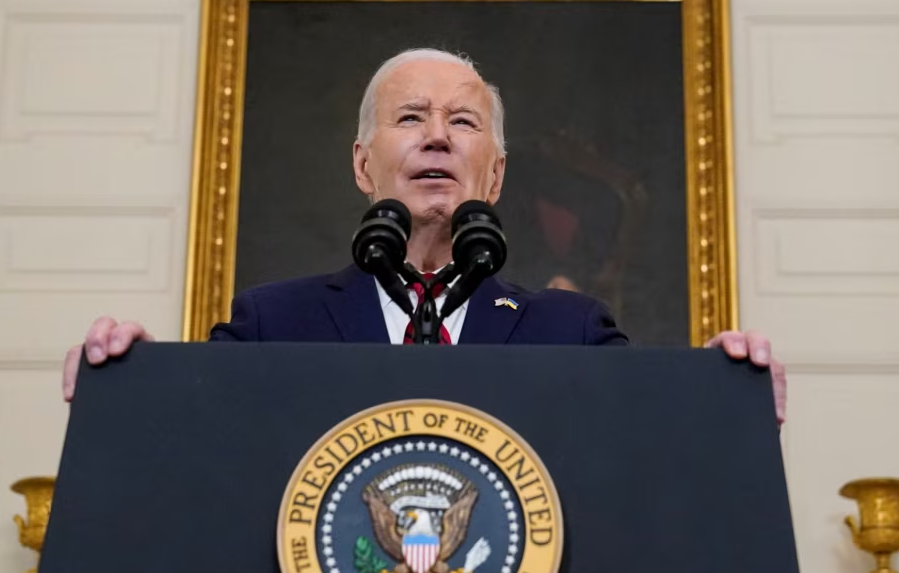Richard Javad Heydarian, Professorial Chairholder in Geopolitics, Polytechnic University of the Philippines
Jan 27, 2025
A second Trump presidency could disrupt Asia with aggressive tariffs, stricter immigration policies, and heightened geopolitical tensions. While some leaders express cautious optimism, the region faces mounting pressure to align with U.S. interests amid fears of economic fallout, strained alliances, and potential conflicts in key areas like the South China Sea and Taiwan Strait.

Warwick Powell, Adjunct Professor at Queensland University of Technology, Senior Fellow at Beijing Taihe Institute
Dec 24, 2024
America’s best-laid plans to change China have clearly failed over the decades. The question now is whether Donald Trump can rise above that history and meet China on its own terms. If not, the incoming occupant of the White House will sadly preside another failed episode of fruitless U.S. ambitions to conquer China.
Chen Jimin, Guest Researcher, Center for Peace and Development Studies, China Association for International Friendly Contact
Dec 24, 2024
Despite his unpredictability, Donald Trump seems committed to the current strategic trajectory. But China has gained a deeper understanding and accumulated significant experience. It will likely approach America’s Indo-Pacific Strategy with greater confidence and composure in Trump’s second term.
Zhang Wenzong, Associate Research Fellow, CICIR
Sep 11, 2024
In the run-up to the 2024 election, we can see how domestic politics bring changes to U.S. foreign policy. Interest groups in crucial swing states will play an outsize role in U.S. policy formulation, and their influence will extend beyond their actual voting power.
Jade Wong, Senior Fellow, Gordon & Leon Institute
Jun 07, 2024
Facing a choice of autonomy or continued dependence on the United States, some factions on the continent seek to avoid that stark choice. In pursuit of a European pillar within NATO, the EU appears to be navigating a middle path.

Sun Chenghao, Fellow, Center for International Security and Strategy of Tsinghua University; Munich Young Leader 2025
Ezgi Koklen, Research Assistant, Ankara Center for Crisis and Policy Studies
Apr 26, 2024
While the United States has come through for its allies in Europe, Israel and Ukraine for now, there is reason for concern. Depending on who is elected U.S. president in November, securing further U.S. support could become increasingly difficult. If Donald Trump wins, there could be trouble ahead.
Zhong Yin, Research Professor, Research Institute of Global Chinese and Area Studies, Beijing Language and Culture University
Apr 19, 2024
Fabricating a strategic architecture by uniting Japan, the Philippines and Australia with the United States will only accelerate the transformation of the region into opposing camps and drag the big powers into a dangerous Thucydides trap.
Richard Javad Heydarian, Professorial Chairholder in Geopolitics, Polytechnic University of the Philippines
Feb 26, 2024
A New Cold War is not in the interest of either the U.S. or China, particularly given the volatility in the Middle East. In fact, the two nations share common interests in the region, and the threat of widespread conflict should inspire an element of strategic sobriety and tactical cooperation.
Zhong Yin, Research Professor, Research Institute of Global Chinese and Area Studies, Beijing Language and Culture University
Feb 20, 2024
America’s actions that are directly detrimental to China’s interests render China’s cooperation in some regions irrelevant. The good news is that China and the U.S. have agreed to strengthen cooperation. But to ensure concrete results, the U.S. needs to do more.
Brantly Womack, Professor, University of Virginia
Dec 14, 2023
The Indo-Pacific aims to contain China's influence but struggles with unclear membership and diverse objectives. By contrast, the economic region of Pacific Asia, centered on China, emphasizes interdependence, but grapples with political uncertainties due to concerns about overreliance on China. The member states of both have agency and will pursue their own interests, but China’s behavior will likely determine which grouping has the greater strategic salience.
Back to Top

- China-US Focus builds trust and understanding between the U.S. and China through open dialogue among thought leaders.
- Our Offerings
- Topics
- Videos
- Podcasts
- Columnists
- Research Reports
- Focus Digest
- Stay Connected
-
Thanks for signing up!
- Get the latest stories from China-US Focus weekly.